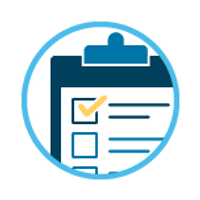Search engines crawl websites to discover content and store it in databases — a process known as indexation. Once content has been indexed, it can be served up on search engine results pages (SERPs) for relevant search queries. Site audits are an essential tool to evaluate how easily a search engine can discover, crawl, and index everything from individual elements of a webpage all the way up to an entire domain.
Are you a professional SEO? Dive into the Technical SEO chapter of our Professional's Guide to SEO.
Looking to learn about crawling and site audits? This page is your home base for resources created for all skill levels.
MozCon Video Bundle
Did you miss this year's MozCon? Now is your chance to experience what everyone has been talking about! We have over 19 hours of actionable inbound marketing knowledge.
Robots Meta Directives
Whereas robots.txt file directives give bots suggestions for how to crawl a website's pages, robots meta directives provide more firm instructions on how to crawl and index a page's content. Learn more about what robots meta directives are all about and how to use them in this article.
Google Search Operators
Google search operators are special characters and commands (sometimes called “advanced operators”) that extend the capabilities of regular text searches. Search operators can be useful for everything from content research to technical SEO audits. Learn more about them in this article.
Schema.org Markup
Learn what schema.org structured data is and why it matters for search engine optimization.
Robots.txt
What is robots.txt, and how does it impact a website's search visibility? How do you create SEO-friendly robots.txt files? Learn in this article.
HTTP Status Codes
Hypertext Transfer Protocol (or HTTP) response status codes are returned whenever search engines or website visitors make a request to your server. This article covers the SEO best practices for using and interpreting these status codes. Dive in!
Domains
Domain names are the unique, human-readable Internet addresses of websites. Learn about the different types of domains and SEO best practices for optimizing domains in this article.
URLs
A URL (Uniform Resource Locator), more commonly known as a "web address", specifies the location of a resource (such as a web page) on the internet. Learn how URLs work and why they matter in this article.
Canonicalization
What is canonicalization? How do you implement the canonical tag on a webpage, and why does it matter for search engine optimization? Learn in this article.
Redirects
Redirection isn't just a matter of using the right HTTP status code. Learn about the SEO implications of redirection and best practices for success in this article.
How to Find and Fix 14 Technical SEO Problems That Can Be Damaging Your Site Now
Are there technical issues plaguing your site beneath the surface? Learn about some of the most common and damaging technical SEO problems and how to begin fixing them.
Technical SEO Certification
Looking to level up your technical skills?
The Technical SEO Certification combines video lessons with tasks and knowledge to level up your technical SEO know-how. Covering the fundamentals, crawling, indexing, accessibility, and site performance, you’ll receive three hours of on-demand instructor-led content. Following the completion of a final exam at the end of the series, you’ll be awarded a certificate and a shiny new badge to share with your professional network.
Magento SEO: The Guide to Optimizing Magento Websites
If you’re an SEO in the e-commerce space, it’s important to learn how to work with Magento. Today, Chris walks you through seven areas for SEO adjustments that are unique to the Magento platform.
Daily SEO Fix: Auditing for Technical SEO Problems with Moz Pro
SEO pros know that a comprehensive search marketing strategy should include periodic audits of a website’s technical health and its opportunities for improvement. But as you uncover these opportunities, how do you know which ones are most important?
6 Steps to Executing an Efficient SEO Clean-Up Strategy
In this article, learn how to successfully execute an SEO clean-up strategy to ensure your site aligns with your business goals, keeps you in Google’s good books, and yields an excellent user experience for visitors and customers.
Faster Sites: Beyond PageSpeed Insights
PageSpeed Insights can be useful, but a perfect score doesn’t guarantee a fast site. There are smarter ways to assess and improve site speed.
Mastering Google Search Operators in 67 Easy Steps
Google search operators are like chess – knowing how the pieces move doesn't make you a master. Dive into 67 examples, from content research to site audits, and level up your search operator game.
I've Optimized My Site, But I'm Still Not Ranking—Help!
When all your hard work seems to be going nowhere, there might be a reason. Jo Cameron walks you through a list of things to check and accomplish to make sure your site can start ranking ASAP.
Be Your Site's Hero: An Audit Manifesto – Next Level
SEO comes with a lot of "whys" that can be difficult to answer. Jo Cameron is here to remove some of the mystery and level up your site audit skills with the help of ace tips, Bonnie Tyler, and a hefty toolkit in the newest installment of our Next Level educational series!
Link Audit Guide for Effective Link Removals & Risk Mitigation
This step-by-step guide aims to help users with the link auditing process relying on own judgment, without blindly relying on automation. Because links are still a very important ranking factor, link audits should be carried out by experienced link auditors rather than third party automated services. A flawed link audit can have detrimental implications.
How to Perform the World's Greatest SEO Audit
Now that tax season is over, it's once again safe to say my favorite A-word... audit! That's right. My name is Steve, and I'm an SEO audit junkie.
An SEO's Guide to HTTP Status Codes (An Infographic)
A visual guide to the HTTP status codes that really matter to SEO (200, 301, 302, 404, 501, 503). Half infographic, half cheat-sheet, half man, half bear, half pig.
How to Perform the Ultimate Local SEO Audit
Are you looking to dominate local search? This guide is all you will need to learn how to perform The Ultimate Local SEO Audit for your business or your clients. Learn what key areas you need to pay attention to, which ones carry the most weight, and determine what you need to do to start beating your competition today.
JavaScript & SEO: Making Your Bot Experience As Good As Your User Experience
More and more, we're realizing it's incredibly important for us as SEOs to understand JavaScript's impact on search experience. Can search engines see your content and experience your site the way a user does? If not, what solutions can you use to fix it?
The Mobile SEO Stack: Tools to Develop a Mobile-First SEO Process
With mobile usage on the rise, it's more important than ever to optimize for on-the-go users. But which tools support mobile SEO? Aleyda's compiled 28 tools that will help you answer all your mobile SEO questions, plus a handy graphic to download for at-a-glance reference.
XML Sitemaps: The Most Misunderstood Tool in the SEO's Toolbox
XML sitemaps are a powerful tool for SEOs, but are often misunderstood and misused. Michael Cottam explains how to leverage XML sitemaps to identify and resolve indexation problems.
How to Fix Crawl Errors in Google Search Console
Search Console is one of the most powerful tools we have for diagnosing website errors. Learn how to prioritize and resolve your site's crawl errors in Google Search Console — those hundreds of 404 errors may not be so daunting after all.











































